This case series reveals what could be a game-changing discovery.

Nov 29, 2024
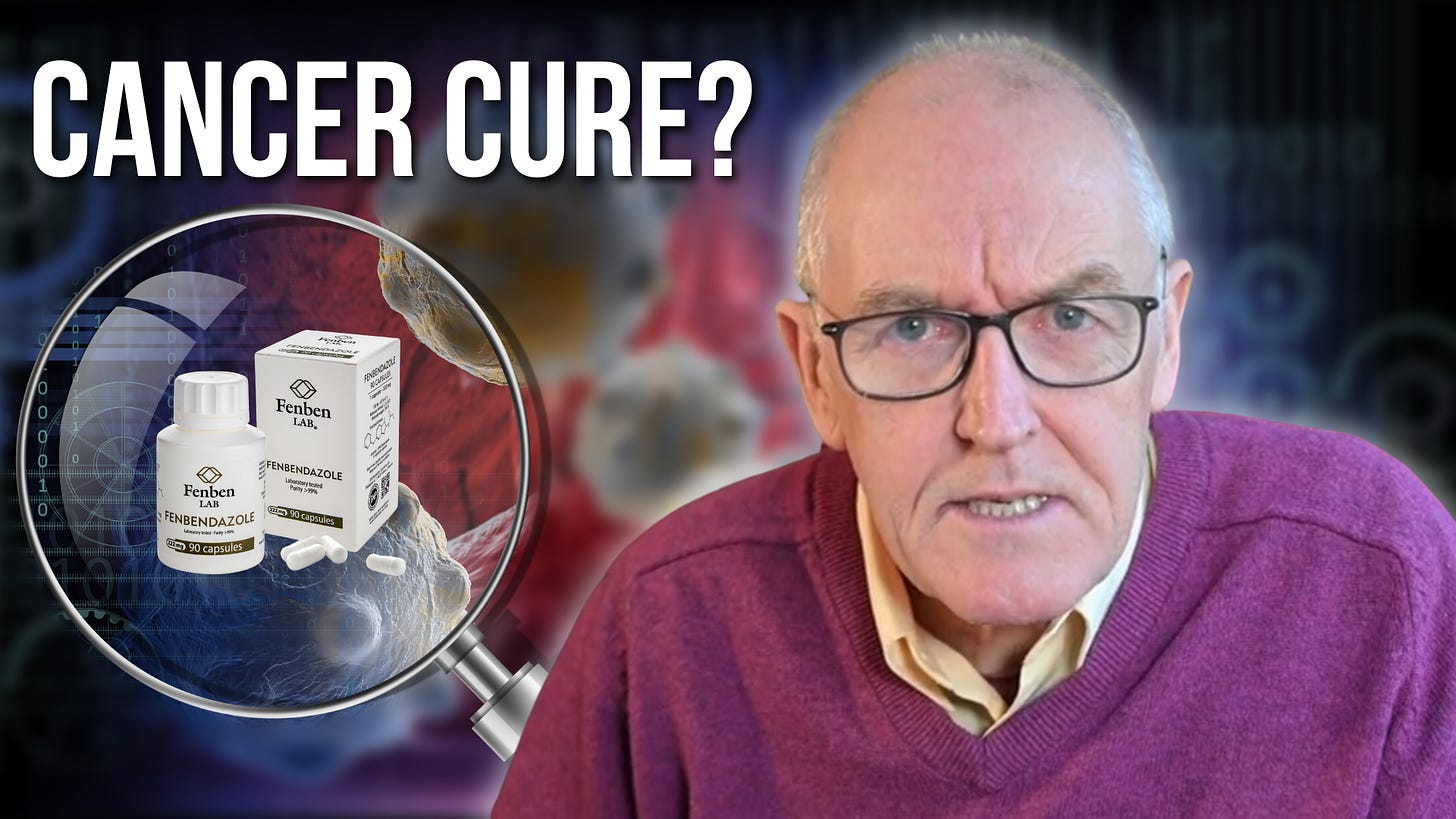
Recently, fenbendazole has generated significant buzz, with some hailing it as a potential breakthrough in cancer treatment. What makes this pet medication even more intriguing is its astonishing affordability—using it for treatment only costs about $11 per week. But does this antiparasitic drug truly live up to the hype? According to a compelling case series published in an oncology journal, the answer might just be a resounding yes.
The case series highlights three cancer patients who were in pretty bad shape. But after taking fenbendazole, they all experienced a complete remission.
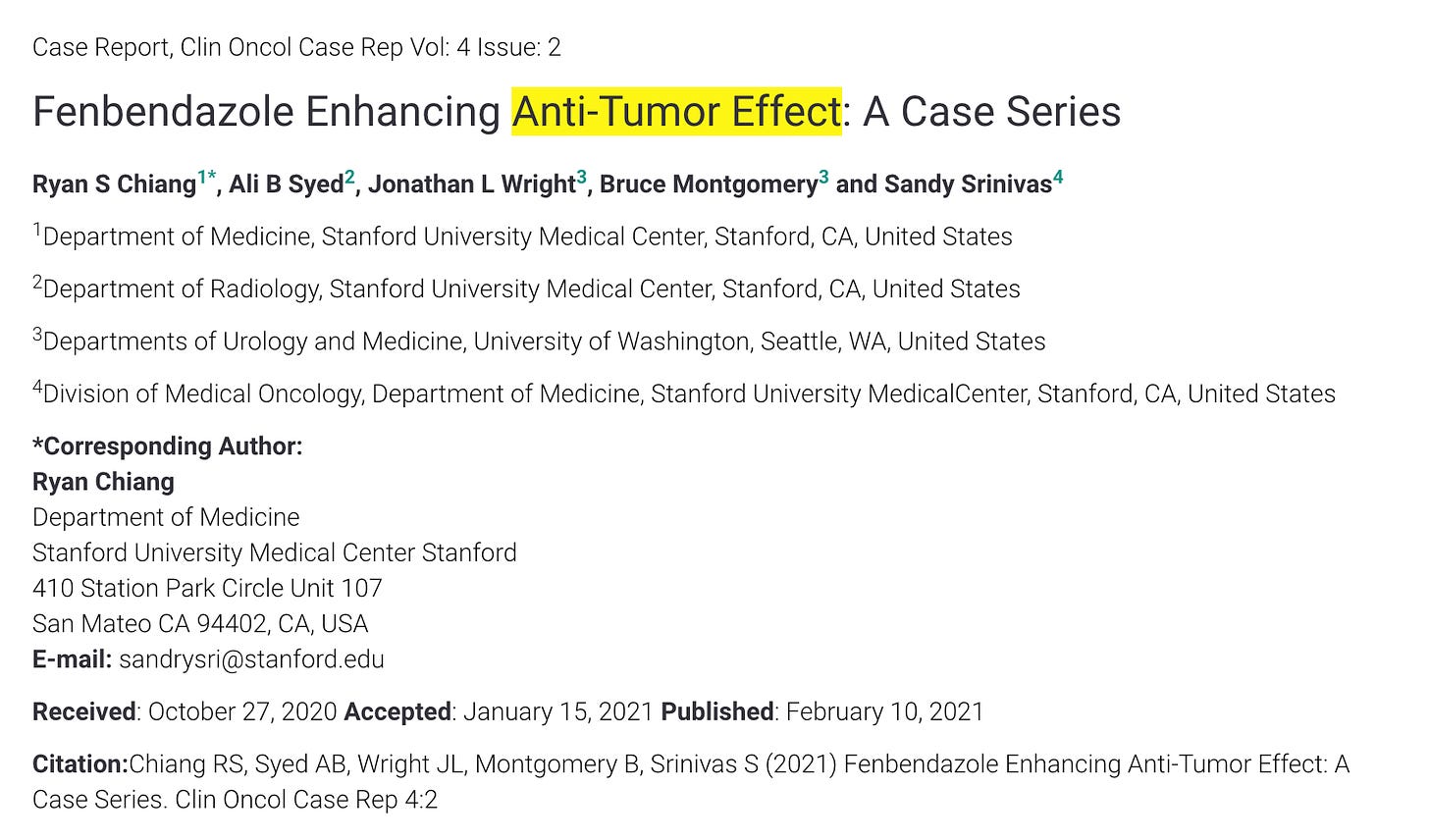
What Is Fenbendazole, and How Does it Work?
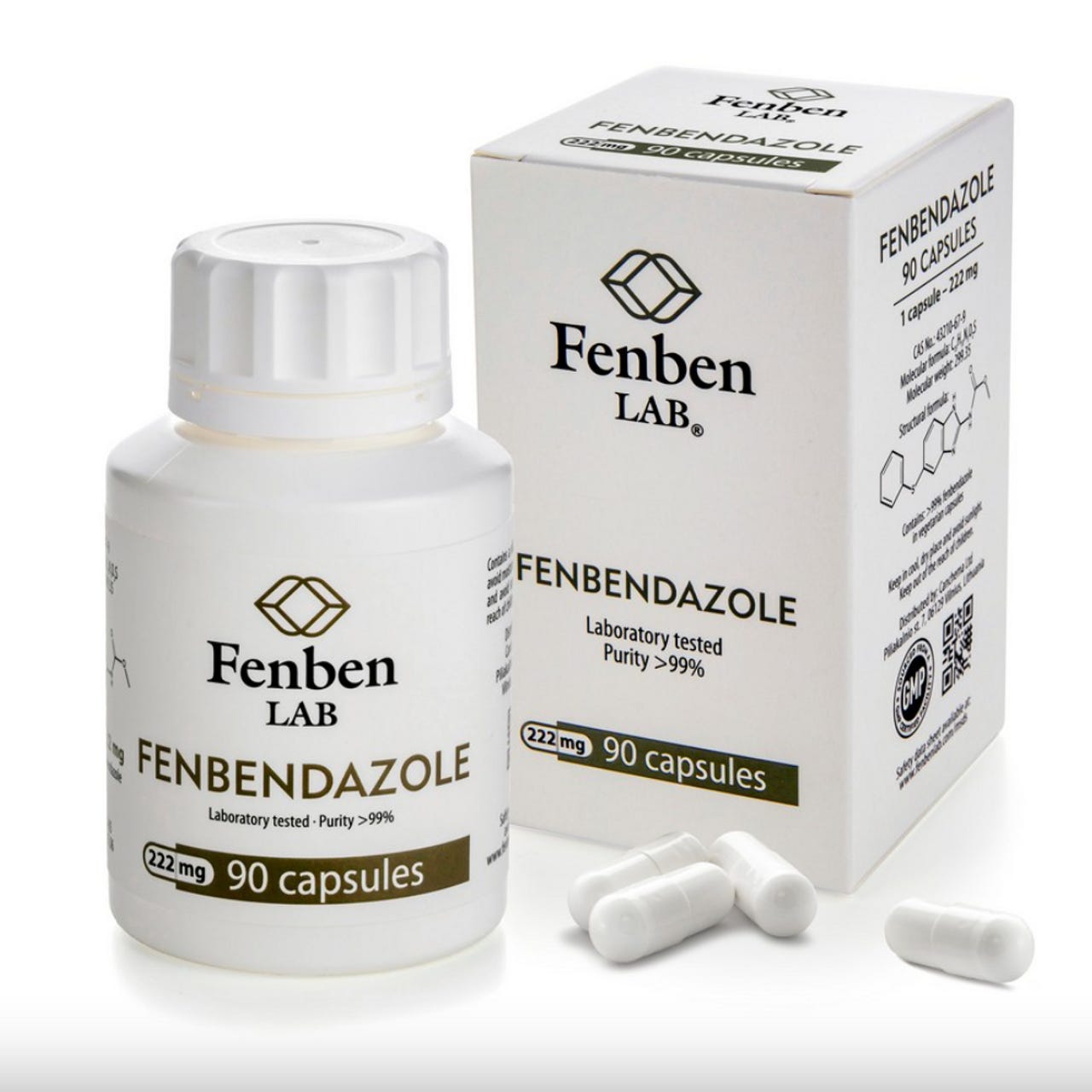
Image: store.morenatural.com
Fenbendazole (FBZ) is a medicine originally designed to treat worms and parasites in animals. Its sister drugs, Mebendazole and Albendazole, have had remarkable success treating similar ailments in humans with few side effects.
Recently, anecdotal reports have praised fenbendazole as a potentially miraculous anti-cancer drug. It works by destabilizing microtubules, the structures that help cancer cells divide and grow. By disrupting this process, fenbendazole effectively halts cancer cell division and slows or stops tumor growth.
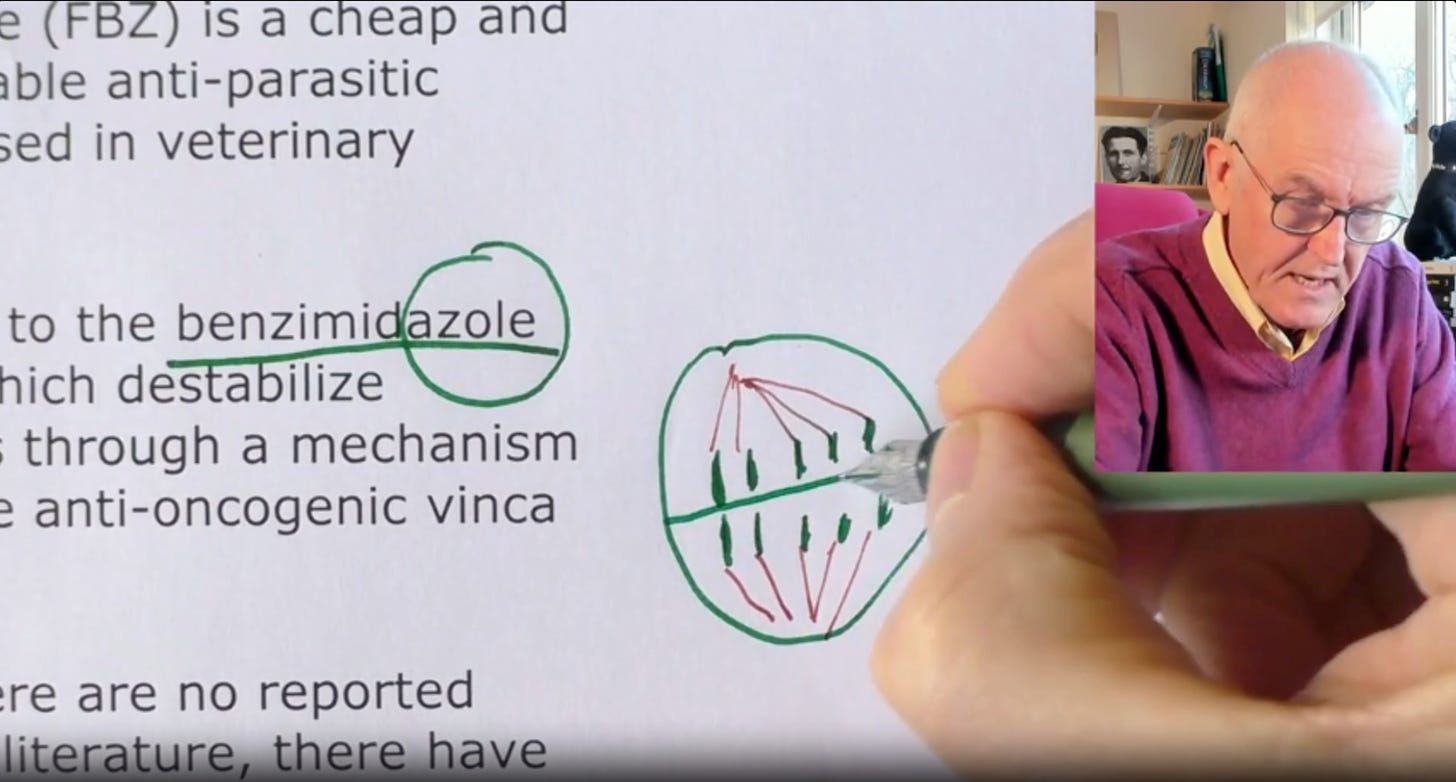
Miraculous Recoveries After Taking Fenbendazole
Case #1 of the series features a 63-year-old man with advanced kidney cancer (clear cell renal carcinoma) who experienced tumor recurrence and severe side effects from multiple cancer therapies, including surgery and two different medications.
With no effective options left, he turned to fenbendazole (FBZ), taking 1 gram three times a week at a friend’s suggestion. Over the next 10 months, his tumors—including those in his pancreas and spine—showed near-complete resolution on imaging. Remarkably, he experienced no side effects from FBZ, and follow-up scans have shown no signs of recurrence.
Case #2 follows a 72-year-old man with metastatic urethral cancer that had spread to his lungs, lymph nodes, and brain. Despite undergoing multiple rounds of chemotherapy and radiation, one lymph node continued to grow, resisting all treatments.
Seeking alternatives, he decided to try fenbendazole (FBZ), taking 1 gram three times a week, along with vitamin E, curcumin, and CBD oil, while postponing further conventional therapies. Over the next nine months, imaging revealed a dramatic response, with the lymph node shrinking significantly until it completely resolved. Remarkably, he reported no side effects during this period.
Case #3 focuses on a 63-year-old woman diagnosed with a large, invasive bladder tumor. Facing a challenging prognosis, she underwent chemotherapy while also taking fenbendazole (FBZ) at 1 gram three times a week.
After completing six cycles of treatment, follow-up scans showed a complete resolution of the tumor, with only minimal thickening remaining in the bladder wall. Confident in her recovery, she chose to decline further surgery and remains disease-free under regular surveillance.
The abstract concluded, “FBZ appears to be a potentially safe and effective antineoplastic agent that can be repurposed for human use in treating genitourinary malignancies.”
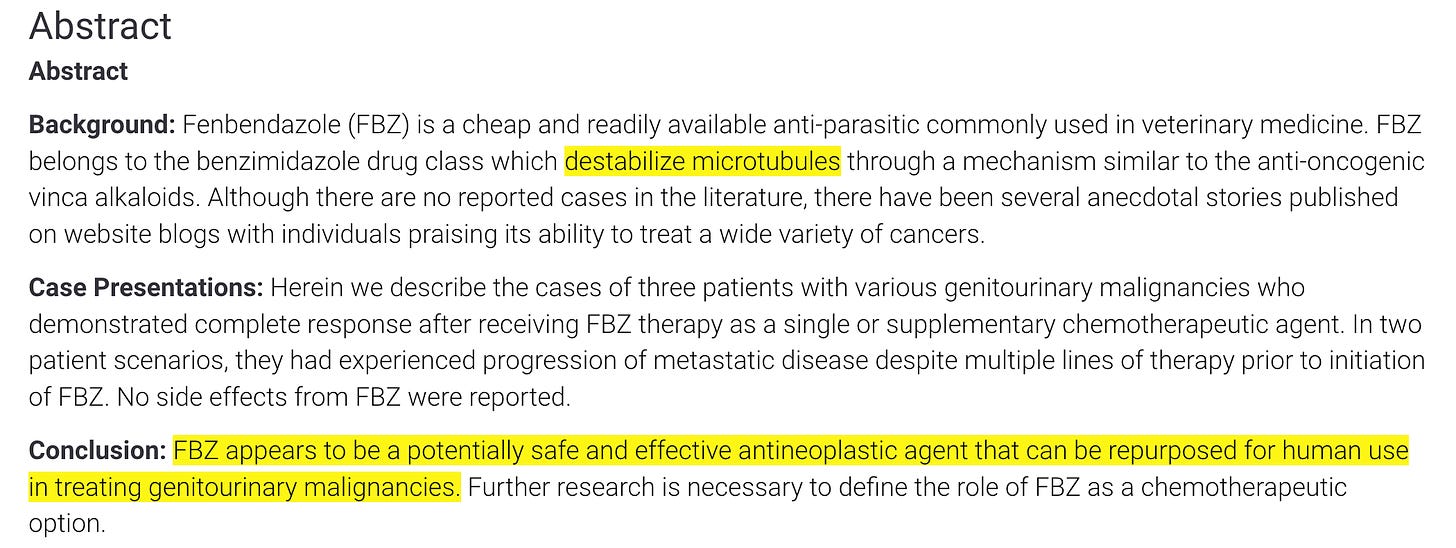
Reflecting on these remarkable case reports, Dr. John Campbell urged drug regulators to “start looking at this as a matter of some urgency because people are dying from cancer now.”
Join 100K+ Substack readers and 1.4 million 𝕏 users who follow the work of Vigilant Fox. Subscribe to Vigilant News for exclusive stories you won’t find anywhere else.
“So if something is safe and effective, surely it can be accredited for human use by our national authorizing agencies pretty quickly if they want to,” Dr. Campbell added with a hint of sarcasm.
Of course, the key words here are “if they want to.”
“Three patients, basically… cured of their cancers. Read the paper for yourself. That’s what they seem to be saying to me.”
“The Truth Is Stranger Than Fiction”
Adding to the growing evidence in support of fendendazole’s use case against cancer, an Oklahoma man credited his miraculous cancer recovery to the pet med after overcoming terminal small cell lung cancer, defying a less than 1% survival rate and leaving doctors baffled.
EDMOND, Okla. — When you tell someone a medicine for dogs cured your cancer, you better be ready for some skeptics, but Joe Tippens says it saved his life, and the lives of others.
Now, even cancer researchers are open to the possibility it might be true.
“My stomach, my neck, my liver, my pancreas, my bladder, my bones — it was everywhere,” Tippens said.
Tippens said he was told to go home, call hospice and say his goodbyes two years ago.
The doctors were unanimous, he was going to die of small cell lung cancer.
“Once that kind of cancer goes that far afield, the odds of survival are less than 1 percent, and median life expectancy is three months,” Tippens said.
Tippens said he went from 220 pounds to 110.
“I was a skeleton with skin hanging off of it,” he said. “It was difficult.”
But that was January of 2017. Today, Tippens is very much alive and what he credits for his survival has doctors scratching their heads, and the rest of us raising eyebrows.
“About half the people think I’m just crazy,” he said. “And about half the people want to know more and dig deeper.”
Tippens said he received a tip from a veterinarian, of all people. And in his desperation, he turned from people medicine to dog medicine.
Specifically, something you give your dog when it has worms.
“The truth is stranger than fiction, you know?” Tippens said, laughing.
Just three months later, Tippens says, his cancer was gone.
Leave a Reply